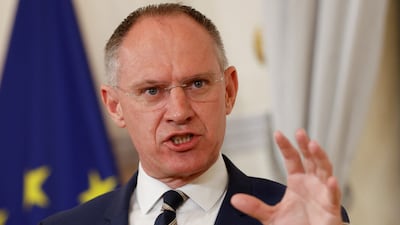A criminal gang responsible for smuggling tens of thousands of Syrians across Europe has been broken up with more than 200 people arrested, Austria’s interior ministry said.
Investigators, who have been investigating the ring since the start of 2021, believe the group smuggled 36,100 predominantly Syrian migrants, including children, from Hungary to Austria.
The migrants stayed in the capital Vienna before many were moved by other gangs to France, Germany, Belgium and the Netherlands.
The gang was said to have received nearly $160 million for their illegal services, making it one of the biggest operations uncovered in Austria, said interior minister Gerhard Karner.
“It's a good day for international co-operation, and it's a bad day for the smuggling mafia,” Mr Karner said on Thursday.
Authorities said the gang was linked to the deaths of two migrants who suffocated in the back of a lorry carrying another 27 people in October last year. The driver of the van fled to Latvia where he was arrested and extradited, the interior ministry said.
Officials said 92 of the arrests were in Austria, while others were held in Hungary, Slovakia, the Czech Republic and Romania. More than 80 vehicles were seized.
Police said that the Syrians paid up to $4,700 just to be taken from Hungary to Austria, two members of the EU, which allows passport-free travel within the 27-nation bloc.
Austria imposed temporary border checks with Hungary in 2015 because of the migration crisis that led to hundreds of thousands of people fleeing to Europe from North Africa and the Middle East.
Controls were also imposed in 2020 because of the Covid-19 pandemic.
The European Court of Justice ruled last month that the checks broke EU law because they were no longer imposed under exceptional circumstances.
But Mr Karner said the controls would be extended for a further six months, largely because of concerns over people smuggling.
“Controls at the borders, in particular, but also in the area close to the border, provide us with essential insights into trafficking organisations and their procedures,” he said.


